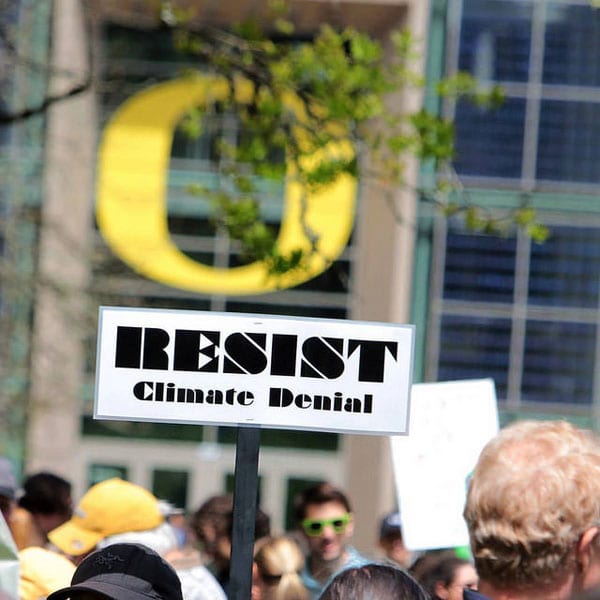
October 22, 2018; The Conversation
Climate change may be the biggest issue of our day, but addressing it may depend on how we talk about it. There appears to be a split between believers and skeptics, but researchers at Indiana University’s Environmental Resilience Institute find that the disagreement is about the source of the problem, not the need for action. And this is where the opportunity lies.
In a recent article in the Conversation, Matthew Houser and Andrea Wenster of the Environmental Resilience Institute ask: If skeptics will not accept the reality of human-caused climate change and that it’s here to stay, what can be done?
The Institute finds that while the Midwest is “a key contributor to climate change in the US” and is itself threatened by climate change, those who identify as politically conservative or Republican are also increasingly skeptical about it.
They define the Midwest as Ohio, Michigan, Indiana, Illinois, Wisconsin, Iowa, Missouri, and Minnesota (all currently red states except Illinois). In Indiana, for example, 46 percent of Republicans and 80 percent of Democrats believe in climate change. The more educated the conservative, the more confident they are in their skepticism.
The reason? The authors observe,
Conservatives appear to be particularly opposed to the idea that humans cause climate change. Past research suggests this may be a result of conservatives’ preference for the status quo, preserving life as it is (or was). Rejecting humans’ involvement also means rejecting the need to change society and your value system.
Sign up for our free newsletters
Subscribe to NPQ's newsletters to have our top stories delivered directly to your inbox.
By signing up, you agree to our privacy policy and terms of use, and to receive messages from NPQ and our partners.
Living in pluralistic or complex societies means living with people with different values systems. The authors note that changing value systems is a losing strategy, and an unnecessary one, because conservatives are particularly primed towards a resilience narrative. They explain,
Resilience focuses on implementing household or community practices that reduce vulnerability to the impacts of climate change. For instance, the risks of flash floods from heavy rain can be reduced by installing water-absorbent green infrastructure, like permeable pavement and rain gardens.
And,
Public leaders in Indiana are conducting studies on how to reduce the impact of flash flooding to protect the local economy and quality of life, converting streetlamps to LEDs as a crime-prevention strategy, installing green infrastructure to revitalize blighted neighborhoods and reduce runoff from heavy rains, and introducing an electric car share program as a way to avoid dependence on foreign oil. These approaches are pursued to increase climate resilience, but many also decrease emissions.
This works because it “emphasizes preserving, rather than changing, society.” Further, the Institute finds that, “Preliminary research suggests conservatives support and undertake resilience practices at similarly high rates to liberals.”
The Institute, which works with “mayors, county commissioners, and other local officials,” shares that “the topics of most concern listed by public officials during these meetings—flooding, business development, workforce development, crime and blighted housing—can be aligned with climate resilience strategies.”—Cyndi Suarez












